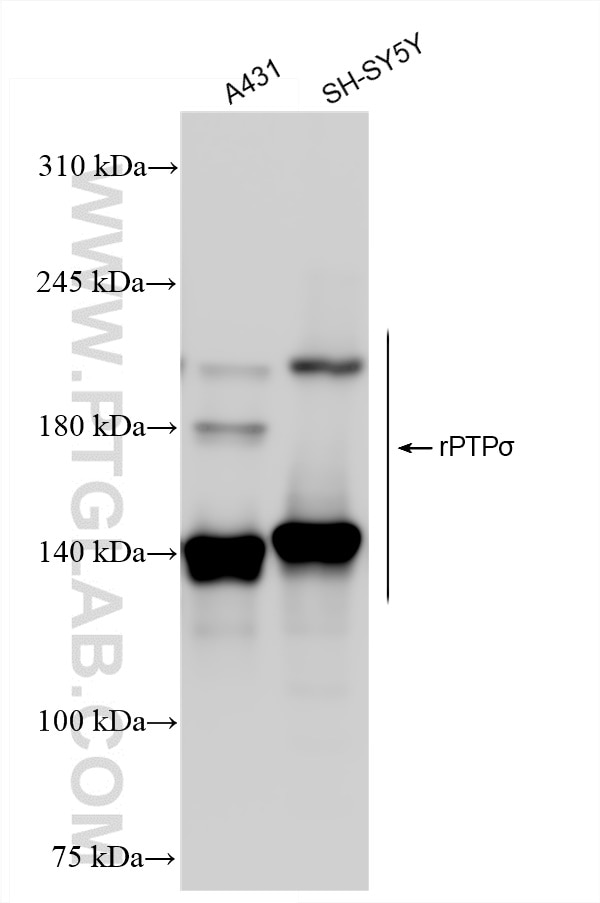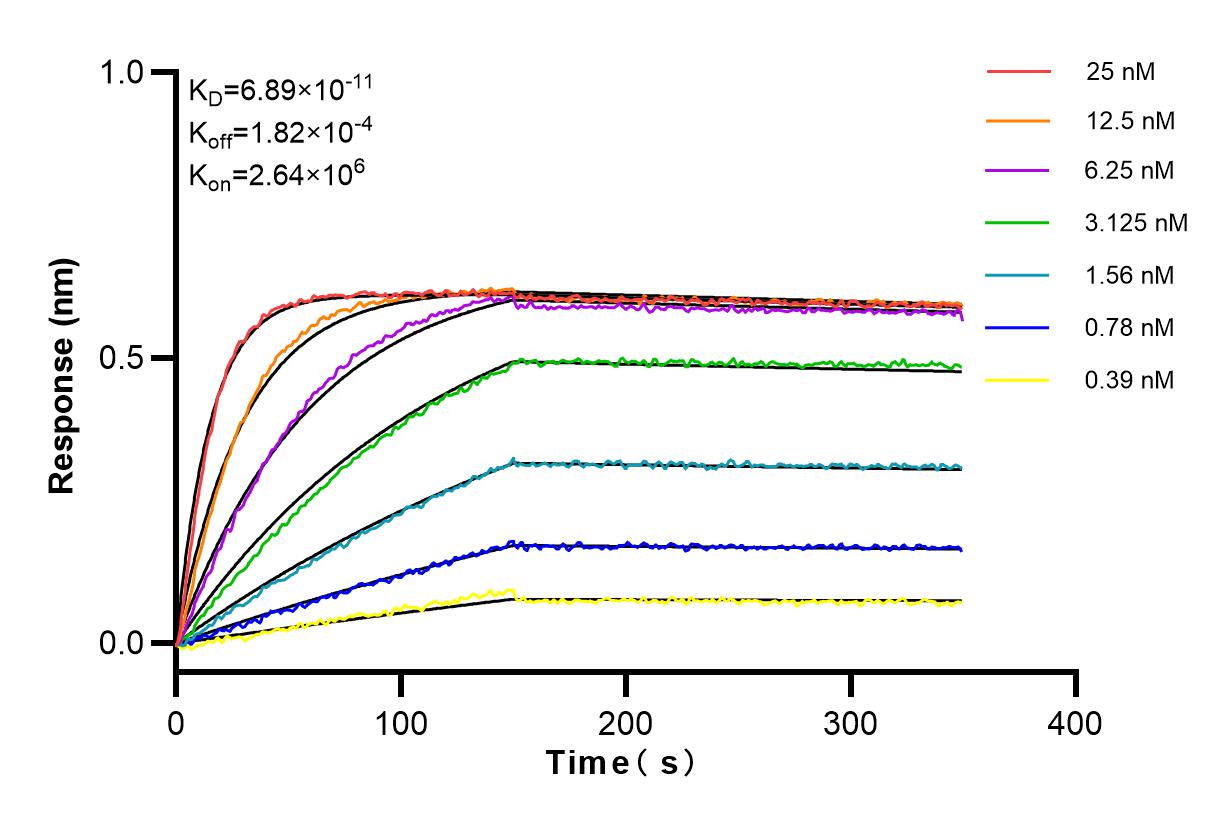Validation Data Gallery
Tested Applications
| Positive WB detected in | A431 cells, SH-5Y5Y cells |
Recommended dilution
| Application | Dilution |
|---|---|
| Western Blot (WB) | WB : 1:5000-1:50000 |
| It is recommended that this reagent should be titrated in each testing system to obtain optimal results. | |
| Sample-dependent, Check data in validation data gallery. | |
Product Information
83833-5-RR targets PTPRS in WB, ELISA applications and shows reactivity with human samples.
| Tested Reactivity | human |
| Host / Isotype | Rabbit / IgG |
| Class | Recombinant |
| Type | Antibody |
| Immunogen |
Fusion Protein 相同性解析による交差性が予測される生物種 |
| Full Name | protein tyrosine phosphatase, receptor type, S |
| Calculated molecular weight | 217 kDa |
| Observed molecular weight | 140 kDa, 217 kDa |
| GenBank accession number | NM_002850 |
| Gene Symbol | PTPRS |
| Gene ID (NCBI) | 5802 |
| RRID | AB_3671416 |
| Conjugate | Unconjugated |
| Form | |
| Form | Liquid |
| Purification Method | Protein A purfication |
| UNIPROT ID | Q13332 |
| Storage Buffer | PBS with 0.02% sodium azide and 50% glycerol{{ptg:BufferTemp}}7.3 |
| Storage Conditions | Store at -20°C. Stable for one year after shipment. Aliquoting is unnecessary for -20oC storage. |
Background Information
Protein tyrosine phosphatase receptor type S (PTPRS, also known as R-PTP-S, PTPSIGMA, and R-PTP-sigma) is an integral membrane protein. It can promote oligomerization by binding to large heparan sulfate proteoglycan structures, and interact with NTRK1/3, PPFIA1/2/3 (PMID: 25385546; 8524829; 9624153). The non-glycosylated molecular weight of PTPRS is 214 kDa, and the extracellular domain can be cleaved near the cell membrane by an endoprotease to generate a glycated 140 kDa protein. Variations and mutations of PTPRS are associated with Alzheimer's disease and cholangiocarcinoma (PMID: 38766183; 35991009).
Protocols
| Product Specific Protocols | |
|---|---|
| WB protocol for PTPRS antibody 83833-5-RR | Download protocol |
| Standard Protocols | |
|---|---|
| Click here to view our Standard Protocols |


